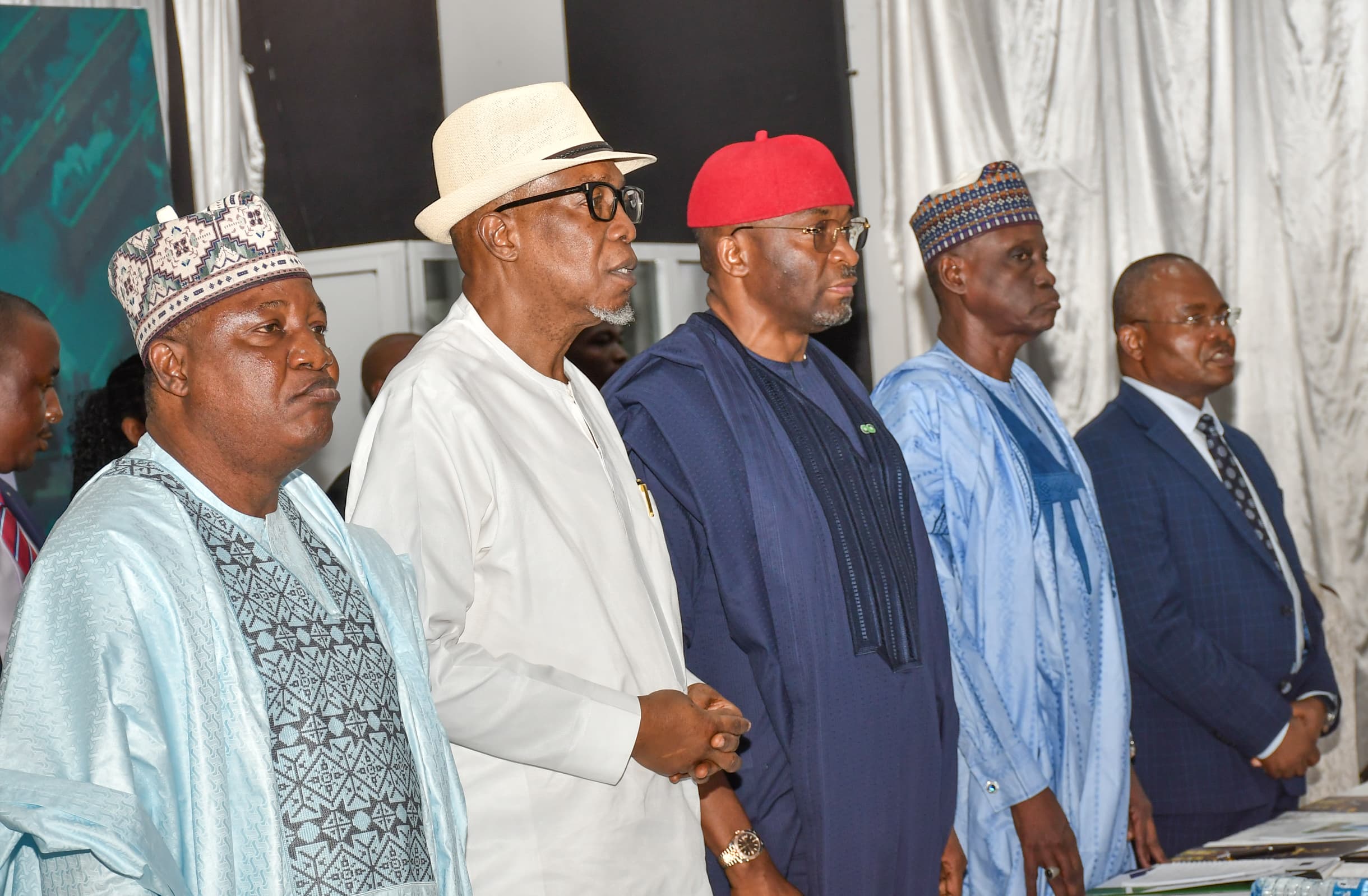Akpabio, Kalu, Dantalle push for justice, inclusion, women’s representation, and local government autonomy during the consultative engagement with political parties

Leaders of Nigeria’s National Assembly and political parties have reaffirmed their commitment to far-reaching constitutional reforms aimed at strengthening democracy, deepening inclusion, and restoring public confidence in governance.
This resolve was the highlight of a consultative engagement between the House of Representatives Committee on Constitutional Review and leaders of political parties, held on Monday in Abuja.
Present at the event were the Senate Chief Whip, Senator Mohammed Munguno who represented the President of the Senate, Godswill Akpabio, Deputy Speaker of the House and Chairman of the Constitution Review Committee, Rep. Benjamin Kalu, and National Chairman of the Inter-Party Advisory Council (IPAC), Dr. Yusuf Mamman Dantalle, among others.
The meeting, described as “historic” by the senate president, provided a platform for Nigeria’s political actors to deliberate on key reform areas including judicial and electoral reforms, local government autonomy, women’s representation, state policing, and human rights protection.
“Democracy must not just endure, it must deliver” — Akpabio
In his keynote address titled ‘renewing the promise of our democracy,’ Senate President Akpabio said the constitution must evolve to meet the demands of the time.
“We are here because we share one belief that our constitution must live, breathe, and grow with the times,” Akpabio said. “This engagement is not routine; it is historic. It says to the world that Nigeria’s democracy is alive and still learning, still listening, still leading.”
He emphasised that the review process must address fundamental pillars of democracy which are justice, inclusion, and accountability and ensure the electoral and judicial systems regain public trust.
“An election is not a ceremony; it is the soul of democracy. And justice is not a luxury; it is the backbone of peace. When elections fail, trust dies. When justice delays, faith decays,” he said.
Akpabio also called for local government reforms and women’s inclusion in governance, saying no democracy can thrive while sidelining half of its population.
“True federalism begins at the grassroots. If government does not work in the village, it has failed in the capital,” he said. “A democracy that sidelines its women weakens itself. It is time for Nigeria to move from the language of sympathy to the policy of inclusion.”
On security, he described state policing as “a practical necessity,” urging that local security structures be developed without compromising civil freedoms.
“Security must be local before it can be national. The call for state policing is not rebellion; it is realism. But in seeking safety, we must not sacrifice freedom,” Akpabio warned.
Parties are the backbone of democracy
Deputy Speaker Kalu, who chairs the Constitution Review Committee, said the review process is the most inclusive in Nigeria’s democratic history, covering all six geopolitical zones and involving citizens, civil society, and traditional institutions.
“We have held retreats with legal scholars, dialogues with civil society, and zonal hearings across the country,” Kalu said. “But this process cannot be complete without you the political parties. You are the backbone of our democracy.”
He explained that the proposed amendments aim to guarantee women’s representation in legislative houses, grant financial autonomy to local governments, and streamline the electoral process to reduce prolonged litigations.
“Before us are critical amendment bills that will define the trajectory of our democracy for the next generation,” Kalu stated. “These reforms go to the heart of what it means to be a democracy.”
He urged party leaders to focus on national interest above partisan divides.
“We all want a Nigeria where elections are free, fair, and credible; where women have an equal seat at the table; and where local governments work,” he said. “These are not partisan issues they are Nigerian issues.”
INEC should conduct LG elections, not states
In his presentation, IPAC national chairman, Dr. Dantalle, outlined a series of proposals supported by political parties to strengthen democratic governance and electoral integrity.
He called for the scrapping of State Independent Electoral Commissions (SIECs) and the transfer of local government election duties to INEC to ensure credible grassroots elections.
“Politics is local. Citizens should be encouraged to actively participate in grassroots politics that guarantees free, fair, and credible local government elections,” Dantalle said.
He also proposed removing the executive’s power to appoint INEC leadership and creating an independent appointment committee comprising representatives of political parties, civil society, and the judiciary.
“This will promote the independence of the commission and ensure all parties have a voice in the process,” he explained.
Dantalle further advocated for the restoration of funding for political parties, the establishment of an electoral offences commission, and special seats for women in the legislature.
“When a section of the society is under-represented in policy discussions, they feel marginalised,” he said. “We support the deputy speaker’s bill on women’s representation.”
He also suggested that vacant legislative seats arising from defections or deaths be filled by the original winning political party through a replacement process, rather than costly by-elections. “This will save resources and uphold party integrity,” he added.
Toward a People’s Constitution
All three leaders agreed that the ongoing constitutional review represents a historic opportunity to renew the social contract between government and citizens.
“The constitution is not a piece of paper; it is the promise of a people,” Akpabio said. “If we stay true to justice, inclusion, and accountability, future generations will say of us: here were leaders who did not merely amend the Constitution, but renewed the nation.”
Deputy Speaker Kalu urged political parties to study the bills and provide inputs that reflect the people’s will, while Dantalle expressed confidence that Nigerians will finally get “a people’s Constitution” that works for all.

